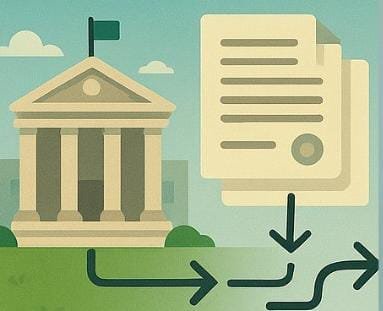
Forests are the lifeblood of our planet, playing a crucial role in regulating the climate, providing clean water, supporting biodiversity, and sustaining the livelihoods of millions of people. Despite their importance, forest areas are often misused or exploited without proper oversight, highlighting the need for permits for forest use as environmental safeguards.
The Critical Role of Forests in Our Ecosystem
Forests offer a wide range of ecological and social benefits, including:
- Climate regulation through carbon storage and oxygen production
- Water cycle support by maintaining rainfall patterns and water purification
- Biodiversity protection as habitats for countless species
- Economic and cultural value for local and Indigenous communities
The sustainable use of these resources demands a regulatory framework that ensures forests are not degraded or destroyed.
The Risks of Unregulated Forest Use
When forests are used without proper permits, the results can be devastating:
- Illegal logging strips the land of protective cover
- Uncontrolled deforestation disrupts ecosystems
- Floods and landslides increase due to erosion and water imbalance
- Conflict may arise between communities, businesses, and the state
Permits help mitigate these risks by requiring an environmental assessment and management plan before any activity begins.
What Activities Require Forest Permits?
In Indonesia and many other countries, several land-use activities within forest areas are regulated and require official permits, including:
- Timber harvesting (concessions)
- Industrial tree plantations (HTI)
- Mining operations
- Infrastructure development (e.g., roads, energy, housing)
These permits ensure that such activities are conducted within legal boundaries and with minimal ecological impact.
Who Issues Forest Permits?
Forest use permits are issued by:
- The central government, often through the Ministry of Environment and Forestry (in Indonesia: KLHK)
- Regional or local governments, depending on land status and jurisdiction
In Indonesia, the Online Single Submission (OSS) system is a common platform for businesses to apply for forest-related permits, aligning with environmental standards and national land-use planning.
Real-World Violations and Consequences
Examples of forest misuse without permits include:
- Clearing land for plantations without proper approval
- Illegal mining in protected areas
- Exceeding concession boundaries without monitoring
These violations lead to environmental degradation, legal penalties, and often spark public resistance from affected communities and civil society.
Conclusion: Managing Forests Starts with Legal Responsibility
Understanding and respecting forest permit regulations is a foundational step toward sustainable forest management. Permits are not a barrier to development—they are tools to balance economic activity with environmental protection. If we want future generations to inherit healthy forests, we must start by ensuring that any use of forest land is legal, responsible, and well-monitored.
